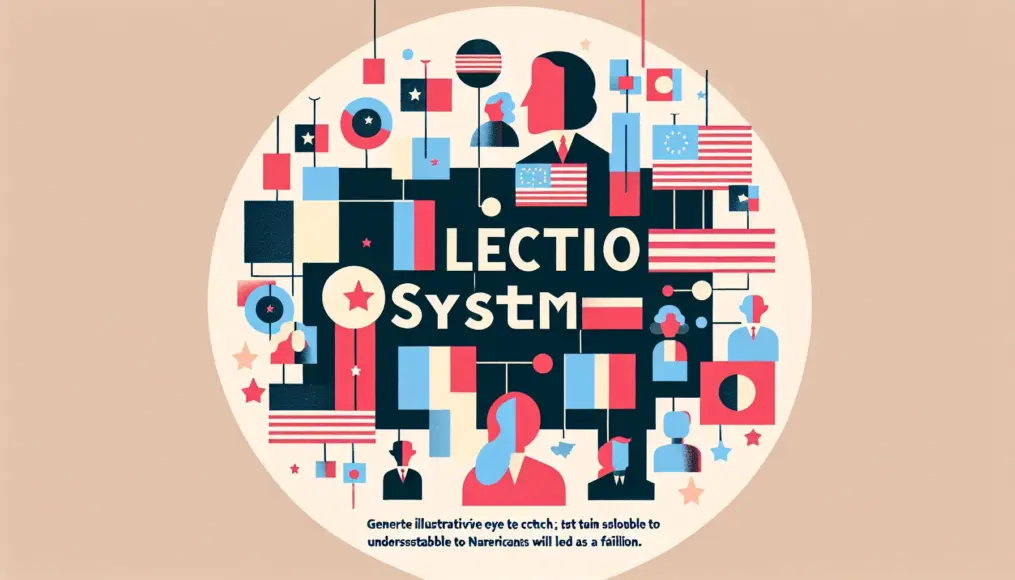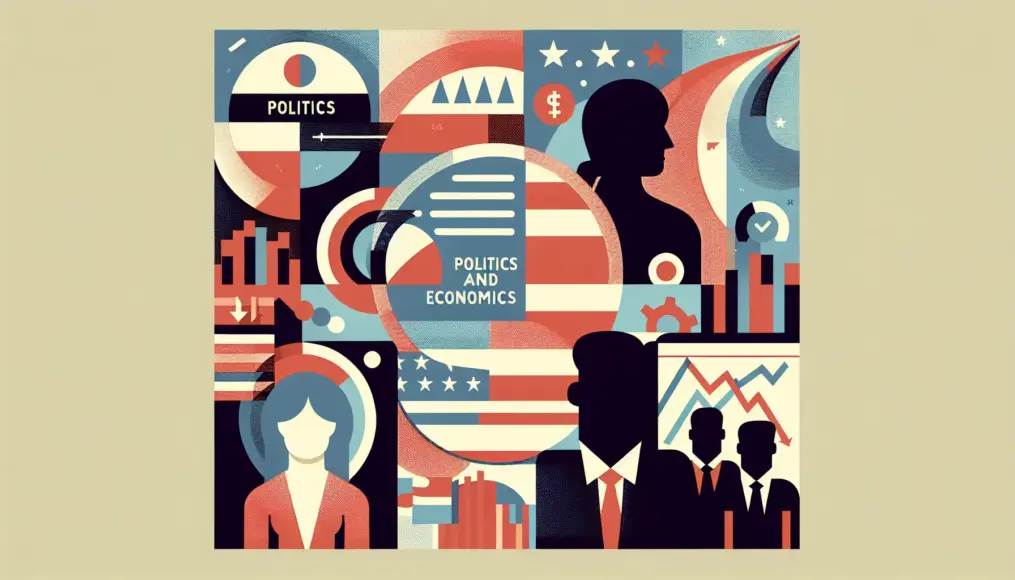Have you ever thought about how public choices impact our future? Understanding how each of our decisions is reflected in public spaces and policies might help us build a better society. In this article, we’ll take a closer look at the fundamentals of public choice theory and its implications.
We’ll explore how choices in politics, economics, and society shape our lives today and how those decisions could influence the future. Gaining a deeper understanding of public choice will provide you with insights to make more informed decisions.
- Discover the foundational concepts and historical background of public choice theory
- Investigate the impact of public choice on economics and policy
- Reflect on how your choices affect society as a whole
What is Public Choice Theory?
Public choice theory is a framework that helps us understand how individual decisions influence the formation of public policy. By grasping this theory, we can see how our choices reflect on society as a whole and the kinds of policies that emerge as a result. Historically, public choice theory has evolved within the fields of political science and economics, making it crucial to consider its significance from a variety of perspectives.
Key Concepts of Public Choice
At its core, public choice theory posits that public interest is shaped through individuals pursuing their own self-interests. This theory views elections and policy decisions as products of individual choices. In other words, the small decisions made by each citizen can ultimately lead to significant policies and public values.
Public choice theory is not limited to political decision-making; it also has broad applications in economic activities and social choices. For example, it serves as a method to analyze how personal choices impact the provision of public services and budget allocations.
- Public choice theory demonstrates how individual choices affect the public good.
- Its applications extend beyond politics to economics and society at large.
- Understanding how individual choices contribute to major policy-making is essential.
Historical Background and Development
The development of public choice theory dates back to the mid-20th century. During this period, economists and political scientists began exploring how individual actions influence collective decision-making. Notably, the work of American economist James Buchanan was foundational in establishing this theory.
Buchanan’s research illustrated how public choice leads to efficient policy formation while also examining its limitations. Today, public choice theory is utilized across various fields, including political science, economics, and sociology, reminding us of the importance of the choices we make in our daily lives.

If you’re interested in this topic, we also recommend the article “Considering the Common Good: Challenges and Prospects in Modern Society.” This piece delves into how the common good should be realized in contemporary society and explores its historical context, helping to deepen your understanding of approaches to pursuing societal well-being alongside public choice theory.
- Public choice theory emerged in the mid-20th century.
- It is well-known for the foundational work of James Buchanan.
- This theory has been widely applied across numerous fields.
The Connection Between Public Choice and Economics
Public choice theory is closely intertwined with economics. By understanding this relationship, we can gain deeper insights into how our choices influence economic activities and public policies. Exploring the role of public choice in economics helps us consider how individual decisions reverberate throughout society and how policy decisions are made.
The Role of Public Choice in Economics
Public choice examines how individual economic choices contribute to the public good. In economics, the impact of individual decisions on the collective economic activities is a significant focus. For instance, consumer choices affect price formation in the market, which in turn influences corporate strategies.
Moreover, public choice theory plays a crucial role in government policymaking. How the government allocates resources and provides public services is shaped by the choices and needs of its citizens. Therefore, considering public choice from an economic perspective can lead to the development of better policies.
- Public choice illustrates how individual economic decisions contribute to the public good.
- Consumer choices influence market price formation.
- Government policy decisions are significantly affected by citizens’ choices.
Impact on Public Policy
Public choice theory also plays an essential role in policy formation. The process of selecting policies often involves the aggregation of individual preferences through elections and voting, making the concept of public choice indispensable. For example, in areas such as environmental policy and welfare policy, there are many situations where choices that consider the public good are required.
Furthermore, public choice serves as a benchmark for evaluating the effectiveness and efficiency of policies. We can analyze whether the selected policies genuinely serve the public interest and how effective their implementation has been from an economic standpoint. This provides valuable insights for future policy decisions.
- Public choice plays a crucial role in policy formation.
- We can understand the process by which policies are formed through the aggregation of individual preferences.
- It is possible to evaluate the effectiveness and efficiency of policies from an economic perspective.
The Impact of Public Choices
Understanding public choice theory is crucial for grasping how our individual decisions influence society as a whole. In this section, we will explore the effects of personal choices on the broader community and how public choices are evaluated. By understanding how our decisions accumulate to shape society, we can think about what actions can lead to a better future.
The Influence of Individual Choices on the Public
The small choices we make in our daily lives can actually have a significant impact on the public. For instance, opting to recycle for environmental protection or participating in local events can raise community awareness when individual actions come together. These choices not only affect our immediate surroundings but can also influence policies and the provision of public services, suggesting that our actions hold the potential to drive substantial change in society.
Voting in elections is another critical choice we make. By casting our votes, we participate in public decision-making and ensure that our voices are heard. Recognizing how individual choices contribute to collective will empowers us to make our actions more meaningful.
- Small everyday choices can have a big impact on the public.
- Environmental protection and community activities can elevate awareness across society.
- It’s important to participate in public decision-making through voting.
Evaluating Social Impact
Assessing the social impact of public choices is essential for improving policies and proposing new initiatives. By understanding how collective decisions shape the public good, we create a foundation for developing more effective policies. For example, analyzing citizen reactions and changes in daily life following the implementation of a particular policy is crucial for future policymaking.
Moreover, evaluating social impact requires robust data collection and analysis. This process helps illuminate which choices contribute to the public good and which issues may arise as a result. Ultimately, these insights can guide us toward better choices and a sustainable society.
- Evaluating the social impact of public choices aids in policy improvement.
- Analyzing citizen reactions and changes in life is essential.
- Data collection and analysis can promote better decision-making.
The Importance of Public Choice in Modern Society
In today’s society, public choice plays an increasingly vital role. Understanding how our daily choices impact politics, the economy, and society as a whole is essential for building a better future. In this chapter, we will explore the relationship between public choice and democracy, as well as our outlook on future public policies.
The Connection Between Public Choice and Democracy
Public choice is at the core of democracy. In a democratic system, it is crucial that the opinions and choices of each citizen are reflected in policy decisions. Expressing our views through voting is a key means of shaping public choice. Through this process, our selections influence the direction of society and the policies that govern it.
Moreover, public choice fosters our ability to express opinions and take action. By considering how our choices affect the public, we become more engaged in society and can propose improvements. In this way, public choice contributes to the development of democracy and enhances individual awareness.
- Public choice is fundamental to democracy.
- Our opinions are reflected in policy decisions through voting.
- It’s important to consider the impact of our choices on the public.
Looking Ahead to Future Public Policies
Understanding public choice is crucial when considering future public policies. As societal needs and challenges evolve, knowing how our choices are reflected in policies is the first step toward achieving a sustainable society. For instance, we need to think about how our decisions impact contemporary issues such as environmental concerns and welfare policies.
Additionally, transparency and opportunities for participation are essential in shaping public policies that reflect the views of the citizens. When we actively express our opinions and make choices, we create a fertile ground for better policies to emerge. The future of public policy begins with each of our choices.
- Understanding public choice is vital for shaping future policies.
- We need to consider choices that align with societal needs.
- Transparency in reflecting citizens’ opinions is essential in policy formation.
Conclusion
Public choice theory offers an essential perspective on how each of our choices influences public welfare and policy. By understanding how individual decisions collectively shape the public good, we can grasp the broader impact of our actions on society as a whole. We’ve also learned that public choice is fundamental to democracy and significantly influences future policy-making.
As we move forward, it’s crucial to recognize the power of our choices and actively engage in societal matters. Deepening our understanding of public choice can be the first step toward building a better future.
- Public choice illustrates how individual choices impact the public good.
- Public choice plays a vital role in the development of democracy.
- Future public policies begin with the choices made by each of us.
Our choices have the power to change the future. We’d love to hear your thoughts and experiences—please share them in the comments!



Comment